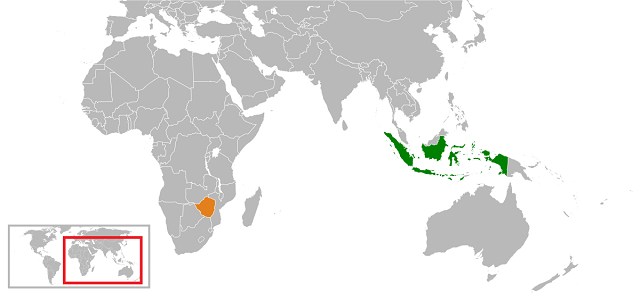Industrialists invited to partner Govt in Rapid Results Initiative

Leonard Ncube in Victoria Falls
The Government is putting in place policy measures to enhance the ease of doing exports to ensure increased contribution by the manufacturing sector to the economy.
Speaking at the Confederation of Zimbabwe Industries (CZI) annual congress here on Wednesday, Industry and Commerce Minister, Dr Mike Bimha, invited industrialists to partner Government in implementation of the Rapid Results Initiative (RRI) to enhance the ease of doing business.
“Manufacturing is at the centre of the thrust for the national, regional and continental industrialisation agenda. The Sadc Industrialisation Strategy and Roadmap whose implementation was approved by the Summit in August 2016, which identified competitiveness as one of the key success factors, a point that was underscored at the first African Economic Forum that was held in Mauritius early this year,” said Minister Bimha.
“Cognisant of the poor performance of manufacturing exports due to a number of challenges, Government through the Office of the President and Cabinet, the Ministry of Industry and Commerce in collaboration with ZimTrade and the private sector, have been engaged in a 200-days Ease of Doing Export Business Rapid Results Initiative Programme aimed at facilitating increase in value-added exports.”
Dr Bimha said the RRI has now been extended to the manufacturing sector, as he called for participation of stakeholders in the project.
“The programme started on 12 December 2016 with the first 100-days Rapid Results Initiative (RRI) ending on 6 March 2017. This was immediately followed by the second 100-days RRI, which ended on 5 July 2017,” he said.
Dr Bimha said the main focus of the RRI was to address export capacity constraints and export regulations, procedures and processes affecting the growth and performance of value-added exports.
He said key challenges identified in the RRI include high cost and limited access to finance, limited value-added export incentives, high production costs, and lack of competitiveness in regional markets, as well as a multiplicity of undesirable export regulations and procedures.
The minister alluded to the 2014 “Cost Driver Analysis” study, which revealed how Zimbabwe fared in comparison with neighbouring countries in terms of investments, exports and markets.
This, he said, gave birth to the National Competitiveness Commission. Dr Bimha, however, said key milestones had been achieved including identification of 22 Statutory Instruments (SIs) administered by various Government ministries and departments.
He said work was underway in the development of a number of sectoral policies and strategies that respond to specific development needs of manufacturing sub-sectors.
These include among others the Pharmaceutical Development Strategy (2017-2022), the draft Motor Industry Development Policy (2017-2030), Competition Policy, Industrial Development, National Trade Policy and Export Strategy as well as the Industrial Development, National Trade Policy and Export Strategy.
Participants at the congress called upon Government to speed up resuscitation of some parastatals whose revival was key to economic turnaround.
Contributing during a question and answer session industrialists stressed the urgency to revamp Ziscosteel, National Railways of Zimbabwe and Cold Storage Company as key drivers of the country’s economy.
The congress, held under the theme “Growing Manufacturing Competitiveness: Realities and Realignment,” ended on Friday. — @ncubeleon









Comments